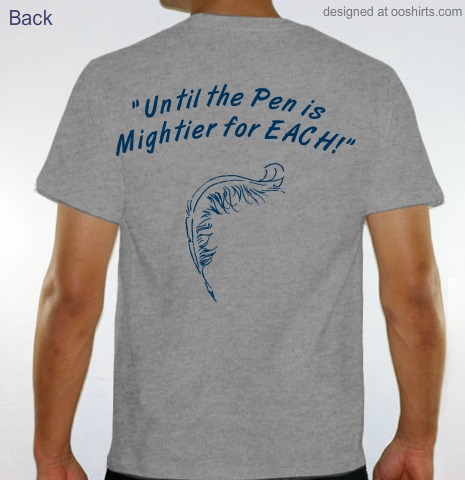This is a response to this post by Gideon Burton. I am the writing tutor he mentions in his post. This started as a comment on the post and then morphed to email, and finally post of my own as I learned exactly how much I had to say on the subject.
This is the longest post I've actually read all the way through! Very engaging. I loved hearing what Brian Jackson had to say.
We actually sort of talked about many of the points he brought up in my tutoring class the other day. We had just read an essay by Kenneth A. Bruffee called, "Peer Tutoring and the Conversation of Mankind", in which he talks, in part, about the benefits of peer tutors in writing and in general. (I work with Brigham Young University's Writing Fellows program.)
Our in class discussion focused around our roles as tutors as we interact with our students. We concluded that we (the tutors) are the solution to this problem posed by Brian," They do not have a vested interest in the outcome of the paper, nor do they know the ways of making knowledge in the community of practice--unless the tweethis is directed to other members of the class."
Before tutoring a class the Fellows spend time with the professor gettting to know the format conventions, and the specifics of the assignment for the class, so that we can approach the papers as an informed audience. It is true that we get paid whether the students get As or Fs, but the nature of most of the Fellows is such that we actually care about helping each student and their writing improve. Therefore we (the tutors) provide an audience not only with a vested interest, but also with the know-how to provide useful feedback.
The class that I am currently working with is ME 363: Early Instrumentation, not surprisingly this is not the sort of class that doesn't exactly involve the writing and perfecting of theses. However, as a tutor I think that given the opportunity I would encourage students to "tweet" their theses, especially to each other. Feedback is an important part of improving the writing of anyone. (That's why we have jobs!)
 |
| The back of the shirt I just designed for the Writing Fellows. Look for them on campus. |
Our in class discussion focused around our roles as tutors as we interact with our students. We concluded that we (the tutors) are the solution to this problem posed by Brian," They do not have a vested interest in the outcome of the paper, nor do they know the ways of making knowledge in the community of practice--unless the tweethis is directed to other members of the class."
Before tutoring a class the Fellows spend time with the professor gettting to know the format conventions, and the specifics of the assignment for the class, so that we can approach the papers as an informed audience. It is true that we get paid whether the students get As or Fs, but the nature of most of the Fellows is such that we actually care about helping each student and their writing improve. Therefore we (the tutors) provide an audience not only with a vested interest, but also with the know-how to provide useful feedback.
The class that I am currently working with is ME 363: Early Instrumentation, not surprisingly this is not the sort of class that doesn't exactly involve the writing and perfecting of theses. However, as a tutor I think that given the opportunity I would encourage students to "tweet" their theses, especially to each other. Feedback is an important part of improving the writing of anyone. (That's why we have jobs!)
I also know that several of my fellow students take issue with letting others into their writing process. They are stuck in the mode of only presenting to the world a finished product. But by our own admission, the tutoring process works best when you let some one else look at a draft and give you insightful feedback.
For those that can't/won't sit down with a tutor, tweeting theses could work as an alternate.
No comments:
Post a Comment